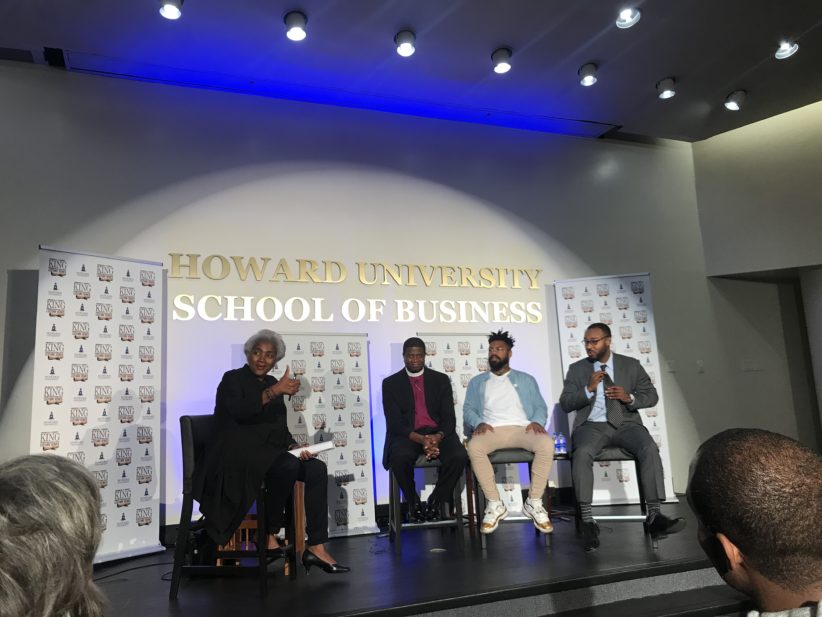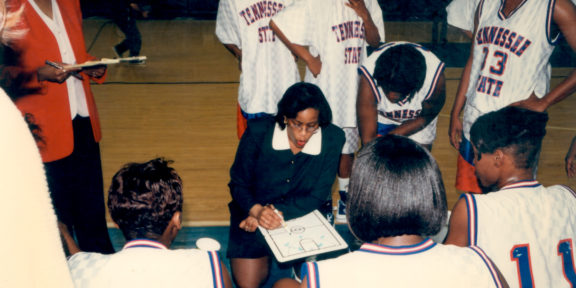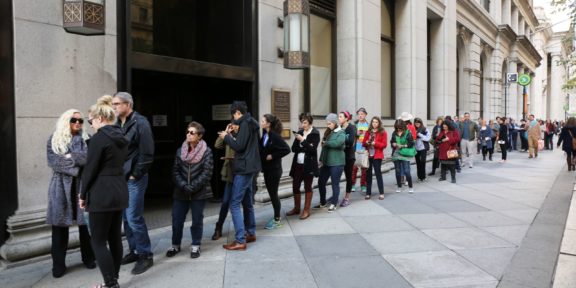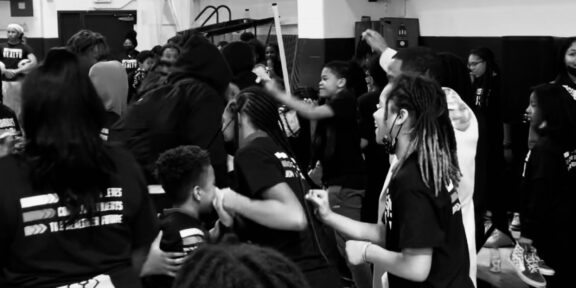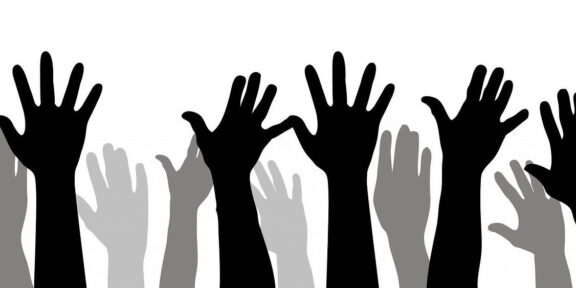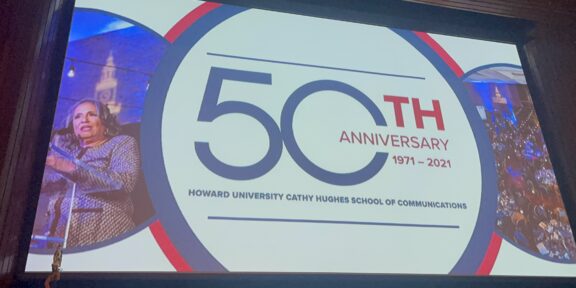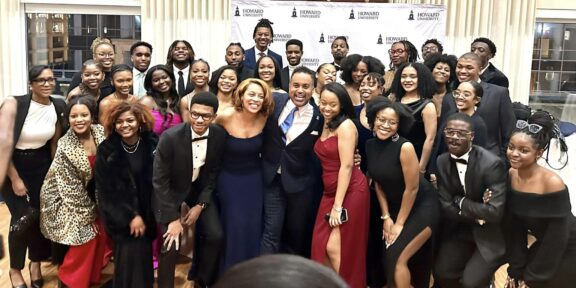Howard University’s Ideas Symposium presented The Case for Reparations in the School of Business auditorium on October 11. Moderator, Donna L. Brazile, King Lecture Series Chair and Political Strategist, along with special guest panelists Bishop Eugene Sutton, Justin Hansford, and Phillip Angew discussed the importance for pushing the agenda for reparations and why the federal government’s involvement is necessary.
In explaining the importance of reparations, many of the panelists explained the aftermath of slavery’s effect.
“In 1619 enslaved persons from Africa were enslaved in Virginia and their lives were stolen from them. Their dignity was stolen, their humanity was stolen. This nation did everything in its power to make sure that people of African descendant would not get a good education, would not get good jobs, would not get good housing, would not get good health care,” Bishop Sutton, Episcopal Bishop of Maryland, said.
The underlying issue they described is America’s inability to acknowledge the theft from black people.
“We should understand first that black people are responsible for the entirety of the wealth of the West. We built Europe. We built the United States. So when we’re talking about a repair, we’re talking about an acknowledgment of what this country truly is. In order for this country to move forward, I think a real reflection of what this country has done to black people is warranted,” Angew, co-founder of Dream Defenders, said. “We deserve it all to be clear.”
H.R.40, a bill that seeks to establish a Commission to study and develop reparation proposals for African Americans, was discussed as a solution to help combat racial injustice.
“If you look at our history, we’ve had peaks of progress followed by valleys of reversal over and over again,” said Justin Hansford, Associate professor at the Howard University School of Law.
After the Emancipation Proclamation, the Reconstruction era occurred where Black people were in power for a number of years leading as politicians. At least 2,000 African Americans held public office ranging from the local level to the U.S. Senate.
Right after, Jim Crow segregation took place and the rise of lynching’s, across the U.S., occurred.
“Even if you look at the election of the first Black president, we were soon afterward followed with the election of a very anti-Black president. So, if you look at the pattern, the racial justice fight has never been one of direct progress going straight up. It’s always been an up and down road. So, if you look an effort like H.R.40 and the question is will it give us racial injustice, I think that’s a difficult question to answer in a sense that we’ve never been on a path for complete success without any possibility of backtracking. I think we should see this effort as another push forward,” Hansford said.
Angew pushed that there is a perpetual system of slavery and although it may not look like what it did years ago, it doesn’t mean it still doesn’t exist today.
“For people to say we’re paying for something that happened years ago, is to be of the belief that it ended. Not only are people clear of the original sin, but we also have an opportunity where millions of young people are now talking the construal changes that need to happen.”
Agnew wants people to eliminate the notion that slavery, oppression, and discrimination has ended for black people. “There have been advancement, but they are exceptions to the rule, they are not the rule,” he said.
Sutton estimated that at least $500 billion in reparations should be owed back to the black community. “A half a year’s deficit for 350 years of thievery. That’s a bargain,” he said.
Hanford believes the causes of racial inequality has over time hurt black people and the effects it still has on many black families today. “The article that Ta-Nehisi Coates called, “The Case For Reparations” laid out a very clear explanation of how specifically the mortgage lending industry and the housing market was skewed racially including with the help of the federal housing administration,” he continued.
Homeownership was accessible to white Americans and not to black Americans. It has been the number one wealth-generating asset in American society. Today, the average African American family earns less than the average White American family. This gap was primarily based on racially-based decisions. “That is one example of a continuing harm that is specifically located in the actions of the federal government,” said Hansford.
Bishop Sutton wants more major faith groups to get on board in recognizing the call for reparations. Agnew wants more young activists to care about the issue being brought forth and acknowledging an end to mass incarceration.
“We can be a nation that commits itself to anti-racism and a just society where everybody has all the resources necessary for living in life. I call that faith work,” said Sutton.
The discussion ended with Bishop Sutton reiterating that reparations is not about individual checks, but about putting wealth back into impoverished Black communities.

